
Juventus Football Club, commonly known as Juventus or colloquially as Juve, is an Italian professional football club based in Turin, Piedmont, who compete in Serie A, the top tier of the Italian football league system. Founded in 1897 by a group of Torinese students, the club played in different grounds around the city, being the latter the Juventus Stadium.

Giovanni "Gianni" Agnelli, nicknamed L'Avvocato, was an Italian industrialist and principal shareholder of Fiat. As the head of Fiat, he controlled 4.4% of Italy's GDP, 3.1% of its industrial workforce, and 16.5% of its industrial investment in research. He was the richest man in modern Italian history.
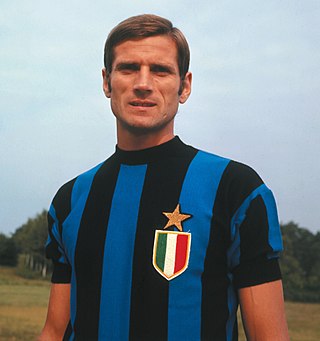
Giacinto Facchetti was an Italian footballer who played as a left-back for Inter Milan from 1960 to 1978. He later served as Inter chairman from January 2004 until his death in 2006. He played 634 official games for the club, scoring 75 goals, and was a member of "Grande Inter" team under manager Helenio Herrera which won four Serie A titles, a Coppa Italia, two European Cups, and two Intercontinental Cups. He placed second for the Ballon d'Or in 1965.
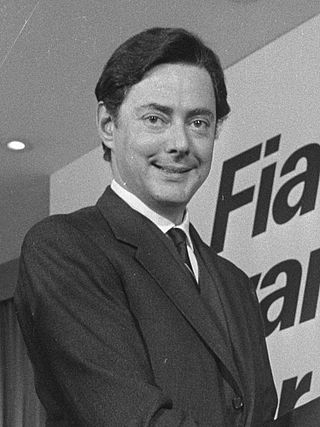
Umberto Agnelli was an Italian industrialist and politician. He was the third son of Virginia and Edoardo Agnelli, and the youngest brother of Gianni Agnelli.

John Philip Jacob Elkann is an Italian industrialist. In 1997, he became the chosen heir of his maternal grandfather Gianni Agnelli, following the death of Gianni's nephew Giovanni Alberto Agnelli, and since 2004 has been leading the Agnelli family, an Italian multi-industry business dynasty. The family has been compared to the US political family of the Kennedys.

Lapo Edovard Elkann is an Italian businessman, philanthropist, and socialite. He is the chairman, founder, and majority shareholder (53.37%) of the Italia Independent Group. He is also the president and founder of Garage Italia Customs and Independent Ideas, as well as a member of the board of directors of Ferrari N.V. and responsible for the promotion of the Fiat Group brand. He is the great-grandson of Fiat S.p.A. founder Giovanni Agnelli, the grandson of Gianni Agnelli, who is the former controlling CEO and controlling shareholder of Fiat Automobiles, and the brother of John Elkann.
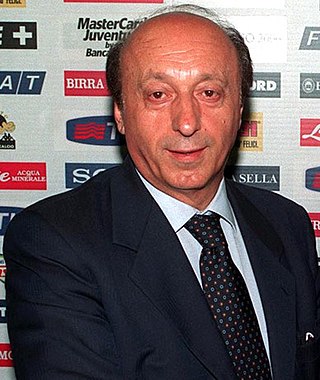
Luciano Moggi is a former Italian association football administrator and convicted fraudster. He was a club executive for Roma, Lazio, Torino, Napoli, and Juventus, leading them to win six leagues, three Coppa Italia, five Supercoppa Italiana, one UEFA Champions League, one Intercontinental Cup, one UEFA Super Cup, and one Intertoto Cup, as well as winning one UEFA Cup with Napoli. He has since become a freelance journalist and commentator.
Calciopoli was a sports scandal in Italy's top professional association football league Serie A and to a lesser extent Serie B. Involving various clubs and numerous executives, both from the same clubs and from the main Italian football bodies, as well as some referees and referee assistants, the scandal was uncovered in May 2006, when a number of telephone tappings showed relations between clubs' executives and referee organizations during the football seasons of 2004–05 and 2005–06, being accused of selecting favourable referees. This implicated league champions Juventus and several other clubs, including Fiorentina, Lazio, AC Milan, and Reggina. In July 2006, Juventus was stripped of the 2004–05 Serie A title, which was left unassigned, and was downgraded to last place in the 2005–06 Serie A, as the title was subsequently awarded to Inter Milan, and relegated to Serie B. Initially Fiorentina and Lazio were also relegated though this was later overturned on appeal, meanwhile all five clubs received points penalties for the following season. In July 2006, the Italy national football team won the 2006 FIFA World Cup, beating the France national football team 5–3 in a penalty shoot-out following a 1–1 draw at the conclusion of extra time; eight Juventus players were on the football pitch in the 2006 FIFA World Cup final, five for Italy and three for France. Many prison sentences were handed out to sporting directors and referees but all were acquitted in 2015, after almost a decade of investigation, due to the expiration of the statute of limitations, except for a one-year sentence confirmed to referee Massimo De Santis.

Giovanni Agnelli was an Italian businessman. He cofounded Fiat S.p.A, an automotive industrial company, in 1899.

Edoardo Agnelli was an Italian entrepreneur and industrialist. He was the principal family shareholder of the Italian car company Fiat, as well as chairman of Juventus from 1923 until his death in 1935.
The history of Juventus F.C. covers over 120 years of association football from the club based in Turin, Italy, and established in 1897 that would eventually become the most successful team in the history of Italian football and amongst the elite football clubs of the world. Iuventūs is Latin for "youth". According to the International Federation of Football History & Statistics, an international organization recognized by FIFA, Juventus were Italy's best club of the 20th century and the second most successful European club in the same period.
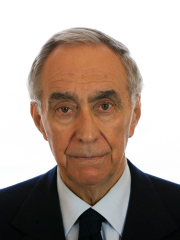
Franco Carraro is an Italian sport manager and politician.

Giovanni Cobolli Gigli is an Italian lawyer and former chairman of Juventus FC After obtaining a business degree from Bocconi University and starting out working in marketing for a multinational pharmaceutical company, he joined Turin company IFI S.p.A., which is now Exor, in 1973. He has been CEO of the Fabbri–Bompiani–Sonzogno–Etas Publishing Group since 1984, then holding the same position in Arnoldo Mondadori Editore since 1993, and in the Rinascente Group since 1994. In 2006, he became chairman of the Exor-owned Juventus association football club.

Exor N.V. is the listed holding company of the Italian Agnelli family.

Andrea Agnelli is an Italian businessman. Since May 2010, Agnelli has served as chairman of Italian association football club Juventus, which returned to Italian football dominance throughout the 2010s with nine consecutive record-breaking Serie A titles, along with four consecutive national doubles and one domestic treble. Under Agnelli's presidency, Juventus also returned to European competitiveness, reaching one UEFA Europa League semi-final and two UEFA Champions League finals. In November 2022, he resigned his positions, amid the Plusvalenze investigation.
The Agnelli family is an Italian multi-industry business dynasty family founded by Giovanni Agnelli, one of the original founders of the Fiat motor company which became Italy's largest automobile manufacturer. They are also primarily known for other activities in the automotive industry by investing in Ferrari (1969), Lancia (1969), Alfa Romeo (1986) and Chrysler, the latter acquired by Fiat after it filed for bankruptcy in 2009. The Agnelli family is also known for managing, since 1923, and being majority investors of the conational Serie A football club Juventus FC since the club's conversion to a società a responsabilità limitata in 1949, as well as being the first shareholders of Sisport. Most members of the family are stakeholders in privately owned Giovanni Agnelli B.V., which in turn has a controlling stake in the publicly listed holding company Exor.
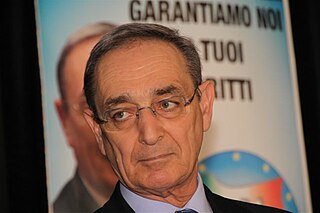
Carlo Taormina is an Italian lawyer, politician, jurist, and academic. Taormina was the defense lawyer of some of the most controversial trials in modern Italian history, from that of the Ustica affair to the trial of the Nazi Erich Priebke, and to the Abu Omar case and the Cogne homicide case. He entered politics in 1996, joining Forza Italia, the political party of Silvio Berlusconi. That same year, he ran for the Chamber of Deputies but was not elected.
Sports proceedings began soon after Calciopoli, an association football scandal, was made public in May 2006. In July 2006, the Italian Football Federation's (FIGC) Federal Court of Justice started the sports trial. Juventus was relegated to Serie B with points-deduction, while other clubs only received points deductions. Most of implicated club's presidents and executives, as well as referees, referee designators, referee assistants, and FIGC higher-ups were initially proposed to be banned for life but only Juventus CEO Antonio Giraudo and Juventus general director Luciano Moggi were confirmed to be banned for life. Two criminal trials took place in Naples, the first related to Calciopoli proper, while the second involved consultancy company GEA World, which was alleged to hold power over all transfers and Italian football players and agents; all defendants were acquitted of the stronger charges. Moggi's legal defence attempted to present those new developments at the Naples court but they were refused because the court ruled that it was there to determinate whether Moggi's lifetime ban should be confirmed and the gravity of his actions, as was sentenced in the controversial 2006 sports trial.

Guido Rossi was an Italian jurist, lawyer, and politician.
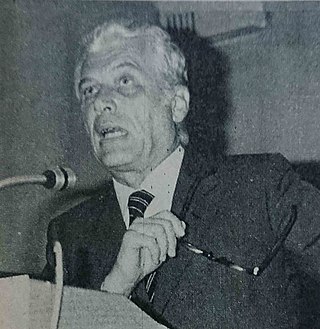
Gianluigi Gabetti was an Italian businessman. Best known for his long-time role as advisor of the Agnelli family and their related business activities, Gabetti was director general of IFIL Group, the family investment company since 1971 that later became Exor, the holding company of the Agnelli family. He worked there as their closest financial adviser for over thirty years. When Gianni Agnelli died in 2003, his younger brother Umberto Agnelli asked the octogenarian Gabetti to return as CEO of IFIL.
















